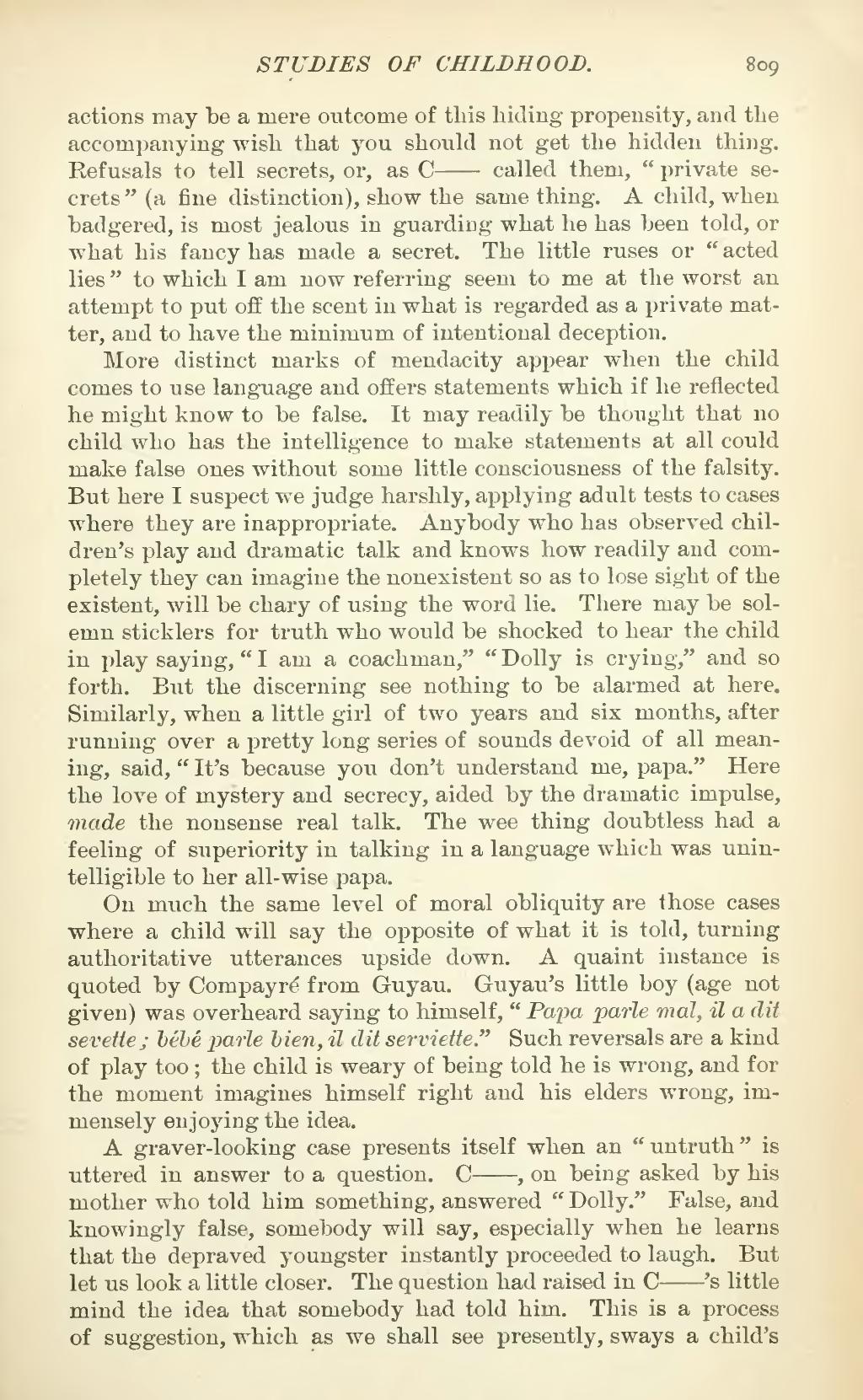actions may be a mere outcome of this hiding propensity, and the accompanying wish that you should not get the hidden thing. Refusals to tell secrets, or, as C called them, "private secrets" (a fine distinction), show the same thing. A child, when badgered, is most jealous in guarding what he has been told, or what his fancy has made a secret. The little ruses or "acted lies" to which I am now referring seem to me at the worst an attempt to put off the scent in what is regarded as a private matter, and to have the minimum of intentional deception.
More distinct marks of mendacity appear when the child comes to use language and offers statements which if he reflected he might know to be false. It may readily be thought that no child who has the intelligence to make statements at all could make false ones without some little consciousness of the falsity. But here I suspect we judge harshly, applying adult tests to cases where they are inappropriate. Anybody who has observed children's play and dramatic talk and knows how readily and completely they can imagine the nonexistent so as to lose sight of the existent, will be chary of using the word lie. There may be solemn sticklers for truth who would be shocked to hear the child in play saying, "I am a coachman," "Dolly is crying," and so forth. But the discerning see nothing to be alarmed at here. Similarly, when a little girl of two years and six months, after running over a pretty long series of sounds devoid of all meaning, said, "It's because you don't understand me, papa." Here the love of mystery and secrecy, aided by the dramatic impulse, made the nonsense real talk. The wee thing doubtless had a feeling of superiority in talking in a language which was unintelligible to her all-wise papa.
On much the same level of moral obliquity are those cases where a child will say the opposite of what it is told, turning authoritative utterances upside down. A quaint instance is quoted by Compayré from Guyau. Guyau's little boy (age not given) was overheard saying to himself, "Papa parle mal, il a dit sevette; bébé parle bien, il dit serviette." Such reversals are a kind of play too; the child is weary of being told he is wrong, and for the moment imagines himself right and his elders wrong, immensely enjoying the idea.
A graver-looking case presents itself when an "untruth" is uttered in answer to a question. C, on being asked by his mother who told him something, answered "Dolly." False, and knowingly false, somebody will say, especially when he learns that the depraved youngster instantly proceeded to laugh. But let us look a little closer. The question had raised in C's little mind the idea that somebody had told him. This is a process of suggestion, which as we shall see presently, sways a child's

